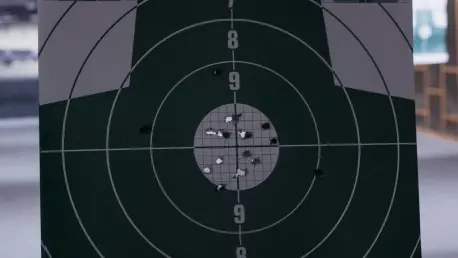The article begins by delving into the legal drama surrounding the destruction of Rad Gun Range, owned by Rudy Cartassi. Following a fire that demolished the gun range, Cartassi found himself facing allegations of insurance fraud. The situation quickly escalated when on April 8, the Alamance County sheriff’s office arrested Cartassi for allegedly making a false insurance claim by stating that ten firearms were destroyed in the blaze. The case not only highlighted the severe scrutiny faced by Cartassi but also raised questions about the robustness of the evidence and investigative process.
Allegations and Arrest
Cartassi was accused of falsely claiming that ten firearms were destroyed in the fire that engulfed his gun range on March 2. The Alamance County sheriff’s office arrested him on April 8, charging him with felony insurance fraud and subsequently released him on a $10,000 bond. The arrest brought the gun range owner into the legal spotlight, with substantial attention focused on the veracity of his claims and the subsequent investigative proceedings. The case against Cartassi shed light on the stringent measures employed in vetting insurance claims, particularly those involving significant losses and property damage.
In the aftermath of his arrest, Cartassi found his conduct under intense examination by legal authorities. The basis of the arrest was rooted in the allegation that he had purposefully misrepresented the loss of firearms during the fire. This legal action against him underscored the gravity with which authorities approach potential insurance fraud cases. The initial stages of the legal proceedings suggested a thorough scrutinization of Cartassi’s insurance claim, an approach aimed at deterring fraudulent activities. However, this was only the beginning of the legal entanglements that were to follow.
Rapid Dismissal of Charges
Surprisingly, the insurance fraud charges against Cartassi were dismissed on April 15, just one week after his arrest. A special prosecutor cited “insufficient evidence to warrant prosecution” as the reason for dropping the case. This abrupt dismissal highlighted potential shortcomings in the evidence that formed the foundation of the charges or possibly new information that emerged casting doubt on the initial allegations. The case’s quick turnaround raised several questions about the robustness of the original investigation and the viability of the prosecution’s claims.
The dismissal of such severe charges within a short time frame marked a notable twist in the legal narrative surrounding Cartassi. It suggested that the evidence collected initially may not have sufficiently supported the severe accusations against him. For Cartassi, this development was undoubtedly a relief, though it did not fully extricate him from the broader disputes and legal examinations surrounding his gun range establishment. The brief duration from his arrest to the dismissal emphasized the fluid nature of legal proceedings, particularly in cases with complex backgrounds and significant public and media attention.
Community Disputes
The community has long been divided over the existence of Cartassi’s gun range, which has been a source of contention since its establishment in 2021. Neighbors have repeatedly voiced concerns about noise, safety, and stray bullets intruding on their properties. Their appeals for regulatory action to the county commissioners have not resulted in new ordinances, despite pressing safety concerns. The tension between the local residents and the gun range underscored the deeper issues within the community regarding the balance between individual business rights and collective public safety.
Neighborly relations saw further strain as attempts to introduce regulatory measures were met with resistance from Cartassi and other gun range owners. The opposition to these regulations highlighted a broader societal debate about the rights of gun range operators versus the safety and tranquility of residential areas. This ongoing dispute portrayed the larger challenge faced by communities nationwide, striving to find an equilibrium between accommodating business ventures and ensuring the well-being and peace of local residents. The lack of successful regulation only amplified these tensions, leaving the community divided.
Civil Lawsuit Filed by Neighbors
The article highlights an ongoing civil suit filed by nearby residents, Howard and Patricia Dunn. The Dunns assert that the gun range’s activities pose serious safety risks, citing several incidents, including stray bullets hitting their property, disruptive explosions, and a past fire incident. They have sought a judicial injunction to prevent further gun range activities until adequate safety measures are in place. This lawsuit represented a critical legal front in the broader community disputes surrounding the gun range and its impact on neighboring properties.
The Dunns’ legal action sought to address long-standing safety concerns and obtain relief from the disruptions attributed to the gun range. By filing for a judicial injunction, the plaintiffs hoped to initiate a judicial mandate requiring Cartassi to implement comprehensive safety measures. This case epitomized the direct confrontation between community members seeking to safeguard their homes and the business operations they perceived as hazardous. The ongoing lawsuit added another layer of complexity to the multifaceted conflict, bringing judicial scrutiny to the safety protocols, or lack thereof, at the Rad Gun Range.
Continuing Investigations
Despite the dismissal of the fraud charges, the fire incident continues to be investigated by both the State Bureau of Investigation and the state Fire Marshal’s office. These ongoing investigations suggest that there may be more to uncover about the events leading up to and following the fire at Rad Gun Range. The persistence of these investigations highlighted the authorities’ commitment to resolving ambiguities and ensuring accountability for the fire’s origins and handling.
The dual investigations by state entities aimed to provide a comprehensive understanding of the incident’s circumstances. This continued focus indicated a broader effort to uncover potentially overlooked details that could shed light on the fire’s cause and verify the legitimacy of the circumstances reported by Cartassi. The ongoing nature of these investigations suggested that the Rad Gun Range saga was far from over, with potential for additional findings or actions to emerge. These probes affirmed the seriousness with which the incident was regarded and the meticulous approach to resolving such an impactful community event.
Broader Implications
The article initially explores the legal complexities surrounding the destruction of Rad Gun Range, owned by Rudy Cartassi. After a fire obliterated the gun range, Cartassi was soon accused of insurance fraud. The matter intensified on April 8 when the Alamance County sheriff’s office arrested him for allegedly making a false insurance claim. Cartassi had claimed that ten firearms were destroyed in the blaze, leading to suspicions and legal action. This situation not only put Cartassi under intense scrutiny but also sparked debates about the quality of evidence and the thoroughness of the investigation. The case emphasizes the legal challenges and scrutiny small business owners may encounter, especially when insurance claims are involved. Moreover, it showcases the potential legal consequences of filing dubious insurance claims and the importance of accurate documentation and honesty in such processes. The investigation’s depth and the nature of the allegations also invite discussion on the protocols followed during fraud investigations.









